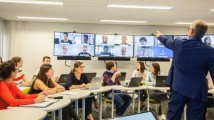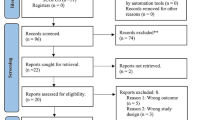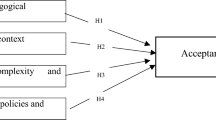Abstract
Nowadays, the role of universities is experiencing a conflict: institutions need certificated and specialized professionals, and students need real knowledge. One hardly could imagine the implementation of this combination in the higher education system, even at the beginning of the university career. Bachelor’s programs indeed tend to be overly specialized and dogmatic, careless of those creative processes underlying innovation. For these reasons, I suggest two innovations to rebalance the strife. The first consists of the possibility for each student to actively choose courses, thus creating personalized and heterogeneous study careers. The second innovation concerns the implementation of hackathon-based teaching to enrich learning through cooperation and competition to solve concrete problems. I suggest that these improvements would guarantee the formation of professionals and allow students to develop actively their system of knowledge, as well as they would break down the barriers to innovation in higher education.
Similar content being viewed by others
Availability of Data and Materials
Data sharing is not applicable to this article as no datasets were generated or analyzed during the current study.
References
Brehm, J. W. (1999). The intensity of emotion. Personality and Social Psychology Review, 3(1), 2–22.
Brewer, D. J., & Tierney, W. G. (2010). Barriers to innovation in US higher education. In American Enterprise Institute Conference Reinventing the American University: the Promise of Innovation in Higher Education. http://www.aei.org/event/100218
Briscoe, G. (2014). Digital innovation: The hackathon phenomenon.
Csikszentmihalyi, M. (2013). Creativity: The psychology of discovery and intervention.
Declaration, B. (1999). Joint declaration of the European Ministers of Education convened in Bologna on the 19th of June 1999. Bologna. Online available: http://www.bolognabergen2005.no/Docs/00-Main_doc/990719BOLOGNA_DECLARATION.PDF
Evans, R., & Leppmann, P. (1970). Resistance to innovation in higher education. Jossey-Bass Publishers Inc.
Friedman, G. (2012). The next decade: Empire and Republic in a changing world. Anchor. huffingtonpost.com/zach-mercurio/how-college-kills-purpose_b_10013944.html
Hung, W., Jonassen, D. H., & Liu, R. (2008). Problem-based learning. Handbook of Research on Educational Communications and Technology, 3(1), 485–506.
Kerby, M. B., Branham, K. R., & Mallinger, G. M. (2014). Consumer-based higher education: the uncaring of learning. Journal of Higher Education Theory & Practice, 14(5).
Kinchin, I. M., Derham, C., Foreman, C., McNamara, A., & Querstret, D. (2021). Exploring the Salutogenic University: Searching for the triple point for the becoming-caring-teacher through collaborative cartography. Pedagogika, 141(1), 94-112.
Lambrechts, W., Mulà, I., Ceulemans, K., Molderez, I., & Gaeremynck, V. (2013). The integration of competences for sustainable development in higher education: An analysis of bachelor programs in management. Journal of Cleaner Production, 48, 65–73.
Levasseur, A. (2012). Does our current education system support innovation?, MindShift, July 17, available at: ww2.kqed.org/mindshift/2012/07/17/does-our-current-education-system-support-innovation/
Mercurio, Z. (2016). How college kills purpose, The Huffington Post, May 24, available at: https://www.huffpost.com/entry/how-college-kills-purpose_b_10013944
Moghaddam, F. M. (1997). The specialized society: the plight of the individual in an age of individualism. Praeger Publishers/Greenwood Publishing Group.
Moglen, E. (2012). Innovation under austerity (keynote). F2C: Freedom to Connect.
Morais, A., Neves, I., & Pires, D. (2004). The what and the how of teaching and learning: going deeper into sociological analysis and intervention, in Muller, J., Davies, B. and Morais, A. (Eds), Thinking with Bernstein, Working with Bernstein, Routledge, London.
Osborne, E., Anderson, & V., Robson, B. (2021). Students as epistemological agents: Claiming life experience as real knowledge in health professional education. Higher Education, 81(4), 741-756.
Science Watch. (2009). Top 20 countries in all fields, Science Watch, Clarivate Analytics, Philadelphia, PA, available at: http://archive.sciencewatch.com/dr/cou/2009/09decALL/
Scott, P., & Conrad, C. (1992). A critique of intensive courses and an agenda for research, Higher Education: Handbook of Theory and Research, Agathon Press, New York, NY, pp. 411–459.
Serdyukov, P. (2017). Innovation in education: what works, what doesn’t, and what to do about it?. Journal of Research in Innovative Teaching & Learning.
Serdyukov, P., & Serdyukova, N. (2012). Time as factor of success in online learning, Journal of Information Technology and Application in Education, 1 No. 2, pp. 40–46, available at: www.jitae.org/paperInfo.aspx?ID=1203
Tait, A., & Faulkner, D. (2016). Edupreneur: Unleashing teacher led innovation in schools. Wiley.
Valsiner, J., Lutsenko, A., & Antoniouk, A. (Eds.). (2018). Sustainable futures for higher education: The making of knowledge makers. Springer.
Westman, R. S. (1980). The astronomer’s role in the sixteenth century: A preliminary study. History of Science, 18(2), 105–147.
Wildavsky, B., Kelly, A., & Carey, K. (Eds.). (2012). Reinventing higher education: The promise of innovation. Harvard Education Press.
Zhao, Y. (2012). World class learners: educating creative and entrepreneurial students, Corwin, Thousand Oaks, CA.
Acknowledgements
I wish to thank the anonymous reviewers for their helpful comments.
Author information
Authors and Affiliations
Corresponding author
Ethics declarations
Conflict of Interest
The author declares no competing interests.
Additional information
Publisher's Note
Springer Nature remains neutral with regard to jurisdictional claims in published maps and institutional affiliations.
Rights and permissions
Springer Nature or its licensor holds exclusive rights to this article under a publishing agreement with the author(s) or other rightsholder(s); author self-archiving of the accepted manuscript version of this article is solely governed by the terms of such publishing agreement and applicable law.
About this article
Cite this article
Moro, A.S. A Concrete Recipe to Reinvent and Innovate the Bachelor’s Program: Free Choice of Courses and Hackathon-Based Teaching. Hu Arenas (2022). https://doi.org/10.1007/s42087-022-00301-x
Received:
Revised:
Accepted:
Published:
DOI: https://doi.org/10.1007/s42087-022-00301-x




